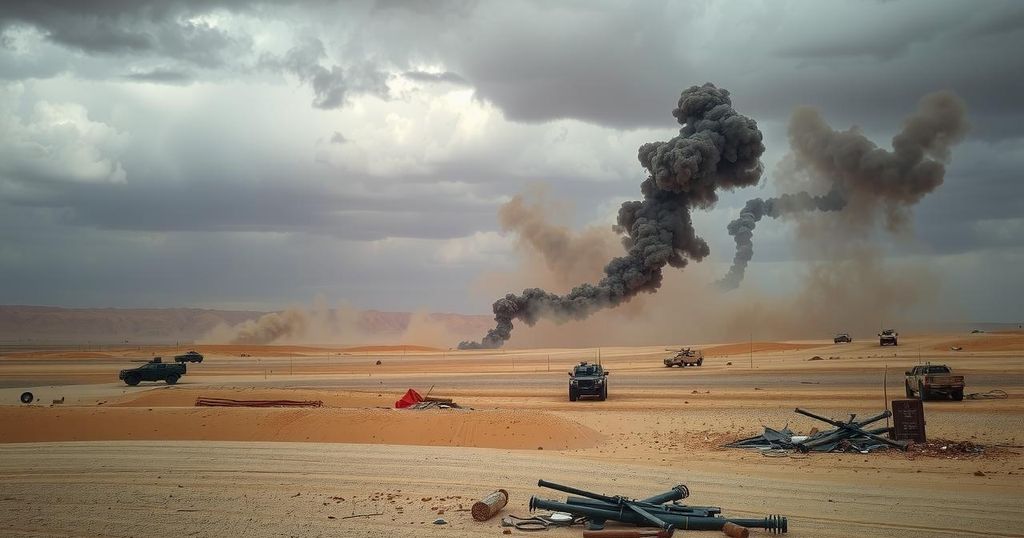U.S. Airstrikes Target Houthi Forces Amid Rising Tensions with Iran

U.S. airstrikes have targeted Houthi capabilities in Yemen, reportedly destroying over 30 military sites, while President Trump indicated Iran would be responsible for any retaliation. Experts express concerns over the effectiveness of such operations, given ongoing Iranian support for the Houthis. The situation underscores a transition to a more aggressive U.S. military stance, which emphasizes the need for strategic consideration regarding the underlying issues and regional stability.
Recent U.S. airstrikes have targeted Houthi capabilities in Yemen, successfully eliminating over 30 sites, including drone facilities and weapons storage. Joint Staff Director for Operations, Lt. Gen. Alexus Grynkewich, indicated that military casualties have been reported, with no credible civilian losses observed. The Pentagon stated that while the attacks were focused on the Houthis, responsibility may extend to the Iranian regime, especially in the event of retaliation.
President Donald Trump emphasized that any attacks from the Houthis would result in a severe response, indicating that Iran is directly involved in supplying the group with weapons and resources. Furthermore, he noted that any further aggression from the Houthis will be viewed as an act of aggression from Iran itself.
The strikes were purportedly intended to disrupt missile launch sites that threaten the Red Sea shipping lanes, which are vital for international trade. Although the U.S. has initiated these operations, experts like Zineb Riboua expressed concerns regarding the sustainability of the strikes and the ongoing assistance that the Houthis may receive from Iran.
Recent hostile actions from Houthi forces have included attacks on the U.S. Navy and commercial shipping, prompting Secretary of State Marco Rubio to report numerous assaults over the past 18 months. As the situation escalates, the U.S. military’s strategy has shifted from restrained responses to a more aggressive posture.
Despite the tension, Iranian officials, including Revolutionary Guard General Hossein Salami, maintain that they do not dictate the actions of allied groups like the Houthis. Skeptics argue that U.S. involvement may not be warranted, noting the limited threat posed to American interests and the potential for international partners to take the lead in addressing this conflict.
Experts also caution that while military action can be decisive, it might not address the underlying ideological issues at play. The broader implications of Iran’s nuclear activities remain a significant concern for the international community, with enrichment levels nearing those necessary for potential weaponization.
The recent U.S. airstrikes in Yemen signify a shift towards a more aggressive military posture against Houthi forces and their connections to Iran. There is ongoing scrutiny regarding the effectiveness and necessity of these actions, particularly concerning U.S. national interests. The involvement of Iran complicates the situation, as it continues to support the Houthis, thereby necessitating a strategic response that balances military action with diplomatic efforts to mitigate further hostilities.
Original Source: www.foxnews.com






